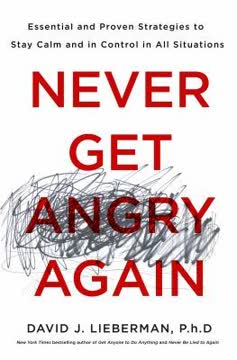Key Takeaways
1. Food is a powerful medicine, influencing both physical and mental health
"Food does not make us healthy. The right kind of food will allow us to reach our maximum health potential, to become as healthy as our genes and constitution may permit."
Food as medicine. Throughout history, cultures have recognized the healing power of food. Hippocrates famously said, "Let food be thy medicine and medicine be thy food." This ancient wisdom is now supported by modern science, which shows that our diet profoundly affects our physical health, mental state, and even our spiritual well-being.
Holistic impact. The food we eat doesn't just provide calories and nutrients; it influences our energy levels, mood, cognitive function, and immune system. For example:
- Complex carbohydrates from whole grains provide steady energy and support brain function
- Omega-3 fatty acids from fish and nuts can reduce inflammation and support mental health
- Fermented foods like yogurt and sauerkraut support gut health, which is linked to overall well-being
Prevention and healing. A balanced, whole-foods diet can prevent many common health issues and even help reverse certain conditions. By choosing the right foods, we can support our body's natural healing processes and optimize our health potential.
2. The body is a complex system: Balance is key to optimal health
"A holistic view of the human body recognizes that its function is affected by a variety of factors, both internal and external, such as food, drink, exercise, emotions, stress, and so on."
Systems thinking. Our bodies are not simple machines, but complex, interconnected systems. This holistic perspective recognizes that every part of our body affects every other part, and that our physical health is intimately connected to our mental and emotional states.
Homeostasis. The body constantly strives for balance, or homeostasis. This balance can be disrupted by various factors, including:
- Diet (excess or deficiency of certain nutrients)
- Environmental toxins
- Stress
- Lack of sleep or exercise
Balancing opposites. Many traditional healing systems, including Chinese medicine, recognize the importance of balancing opposing forces in the body. This concept applies to diet as well:
- Expansive vs. contractive foods
- Warming vs. cooling foods
- Acid-forming vs. alkaline-forming foods
By understanding these principles, we can make dietary choices that support our body's natural balance and promote overall health.
3. Traditional diets offer wisdom: Whole foods support natural healing
"Whole foods are simply fresh, natural, edible things, as close to their natural state as possible: fruits, fresh vegetables, unrefined cereal grains, beans, nuts, seeds, sea vegetables."
Ancestral wisdom. Traditional diets from around the world offer valuable insights into healthy eating. These diets typically share common characteristics:
- Emphasis on whole, unprocessed foods
- Seasonal and locally sourced ingredients
- Balanced combinations of foods (e.g., grains and beans)
- Fermented foods for gut health
Nutrient density. Whole foods provide a complex array of nutrients in their natural proportions, which our bodies are designed to utilize efficiently. This is in contrast to processed foods or isolated nutrients, which can create imbalances.
Supporting natural healing. By eating whole foods, we provide our bodies with the tools they need to maintain health and heal from illness. This approach:
- Supports the immune system
- Reduces inflammation
- Promotes optimal digestion and nutrient absorption
- Balances hormones and neurotransmitters
4. Modern diet pitfalls: Processed foods and nutrient imbalances
"The partial, fragmented, unwholesome, chemically-tampered-with foods that the Standard American Diet (S.A.D.) consists of cannot, in the long run, adequately support healthy life processes …"
Processed food problems. The modern Western diet, often referred to as the Standard American Diet (SAD), is characterized by:
- High intake of processed and refined foods
- Excessive sugar, salt, and unhealthy fats
- Low intake of fruits, vegetables, and whole grains
- Reliance on artificial additives and preservatives
These dietary patterns contribute to numerous health issues, including obesity, diabetes, heart disease, and certain cancers.
Nutrient imbalances. Even when calorie intake is sufficient, the SAD often leads to nutrient deficiencies and imbalances. This is due to:
- Overconsumption of nutrient-poor, calorie-dense foods
- Soil depletion leading to less nutrient-dense produce
- Overreliance on a limited range of foods
- Disruption of natural nutrient proportions (e.g., high protein without corresponding minerals)
To optimize health, it's crucial to move away from processed foods and towards a diverse, whole-foods diet that provides nutrients in their natural proportions.
5. Listening to your body: Recognizing and addressing imbalances
"Our body always tries to return of its own accord to its correct form and balance."
Body wisdom. Our bodies have innate intelligence and are constantly striving for balance. By learning to listen to our body's signals, we can identify imbalances and make appropriate dietary adjustments.
Recognizing signals. Common signs of imbalance include:
- Digestive issues (bloating, constipation, diarrhea)
- Skin problems (acne, rashes, dryness)
- Energy fluctuations
- Mood swings
- Cravings for specific foods
Interpreting cravings. Food cravings often indicate underlying imbalances:
- Craving sweets may indicate mineral deficiencies or blood sugar imbalances
- Craving salty foods might suggest adrenal fatigue or electrolyte imbalance
- Craving fats could indicate essential fatty acid deficiency
By paying attention to these signals and making appropriate dietary changes, we can support our body's natural healing processes and maintain optimal health.
6. The healing power of fasting and dietary adjustments
"Fasting is entirely voluntary and an individual choice; it has a beginning, an end, and a clear goal, be it healing, a political objective, or a spiritual vision."
Fasting benefits. Periodic fasting or calorie restriction has been shown to have numerous health benefits:
- Promotes cellular repair (autophagy)
- Reduces inflammation
- Improves insulin sensitivity
- Supports weight loss
- May increase longevity
Types of fasting. There are various approaches to fasting:
- Intermittent fasting (e.g., 16/8 method)
- Extended fasts (24 hours or more)
- Fasting mimicking diets
- Juice or broth fasts
Dietary adjustments. Sometimes, simply adjusting our diet can have powerful healing effects:
- Eliminating common allergens (e.g., dairy, gluten)
- Increasing intake of anti-inflammatory foods
- Balancing macronutrients (proteins, fats, carbohydrates)
- Addressing specific nutrient deficiencies
It's important to approach fasting and significant dietary changes with caution and, when appropriate, under professional guidance.
7. Specific foods as remedies: Natural solutions for common ailments
"Food, if appropriate, as we have seen in this book, can continually heal our bodies, rebalancing them whenever they go slightly off-balance."
Food as medicine. Many common health issues can be addressed through dietary changes or specific food remedies. For example:
- Ginger tea for nausea and digestive issues
- Garlic for its antimicrobial properties
- Turmeric for inflammation
- Fermented foods for gut health
Balancing opposites. Traditional healing systems often use the principle of opposites to address imbalances:
- Cooling foods for inflammatory conditions
- Warming foods for digestive weakness
- Contractive foods for diarrhea
- Expansive foods for constipation
Personalization. While general principles apply, it's important to remember that individual responses to foods can vary. Paying attention to how your body reacts to different foods is key to finding effective food-based remedies.
8. The mind-body connection: Emotional and spiritual aspects of healing
"Symptoms are always a change in the function and eventually the structure of the body. What does this change mean?"
Holistic health. True healing involves not just the physical body, but also our mental, emotional, and spiritual aspects. Stress, emotional trauma, and negative thought patterns can manifest as physical symptoms.
Food and mood. Our diet can significantly impact our mental and emotional state:
- High-sugar diets can lead to mood swings and anxiety
- Omega-3 fatty acids support brain health and may alleviate depression
- Certain nutrients (e.g., B vitamins, magnesium) are crucial for neurotransmitter production
Spiritual nourishment. Some foods are traditionally associated with spiritual growth:
- Whole grains for centeredness and clarity
- Fruits for lightness and joy
- Fasting for spiritual insight and purification
Recognizing the interconnectedness of body, mind, and spirit allows for a more comprehensive approach to health and healing.
9. Chronic illness: Dietary approaches and limitations
"All diseases can be cured, but not all people."
Dietary interventions. While diet can be a powerful tool in managing and even reversing some chronic conditions, it's important to have realistic expectations:
- Autoimmune disorders may respond to anti-inflammatory diets
- Heart disease risk can be reduced through low-fat, plant-based diets
- Some cancers may be influenced by dietary choices
Limitations. Diet alone may not be sufficient to cure all chronic illnesses, especially those involving severe organ damage or genetic factors. In these cases, dietary changes can still:
- Support conventional treatments
- Improve quality of life
- Potentially slow disease progression
Integrated approach. For serious chronic illnesses, it's often best to combine dietary interventions with:
- Conventional medical treatments
- Stress reduction techniques
- Exercise (as appropriate)
- Emotional and spiritual support
While food can be powerful medicine, it's important to work with healthcare professionals to develop a comprehensive treatment plan for chronic conditions.
Last updated:
Review Summary
Food and Healing receives mostly positive reviews, with readers praising its comprehensive approach to nutrition and healing. Many appreciate the author's flexible, individualized perspective on diet and health. The book is lauded for its clear writing, helpful charts, and emphasis on listening to one's body. Some readers found it life-changing, while others criticized it as outdated or too "hippie." Critics also noted concerns about the author's stance on vaccines and modern medicine. Overall, readers found the book informative and thought-provoking, even if they didn't agree with all its ideas.
Similar Books







Download PDF
Download EPUB
.epub digital book format is ideal for reading ebooks on phones, tablets, and e-readers.




